Conversion of a sole proprietorship into a GmbH or AG

Many entrepreneurs begin their journey with a sole proprietorship. It’s simple to set up, requires no minimum capital, and offers full control. But as the business grows, so do the legal, financial, and reputational demands. At some point, converting your company into another legal form – such as a GmbH or an AG – becomes a logical next step and offers numerous advantages.
This article explains when and why converting your sole proprietorship makes sense, the legal mechanisms available for doing so, and how to complete the process correctly while avoiding unexpected tax consequences.
Book a free initial consultation with our experts.
Book a callHighlights
- A sole proprietorship cannot be converted directly; assets must be transferred to a newly founded GmbH or AG
- Contribution in kind is the most common conversion method and allows you to use your existing business equity as share capital
- Hidden reserves can be transferred tax-free under Art. 19 DBG, but a 5-year lock-up period applies
- The VAT notification procedure (Art. 38 VAT Act) allows VAT-free asset transfers if done correctly
- The entire conversion process can be handled digitally with Nexova, including notarization and commercial register filing
Content
- Conversion of a sole proprietorship into a GmbH or AG
- Highlights & content
- Understanding Sole Proprietorships, GmbHs, and AGs
- Why convert a sole proprietorship into a GmbH or AG?
- When is it time to convert?
- Can you legally convert a sole proprietorship into a GmbH or AG?
- How to convert a sole proprietorship through contribution in kind: step-by-step guide
- Tax Considerations
- What are the costs of converting a sole proprietorship?
- How long does it take to convert a sole proprietorship?
- Your digital trustee partner
- FAQ
- Trusted by over 150 companies
Understanding Sole Proprietorships, GmbHs, and AGs

In Switzerland, the three most common legal forms for small and medium-sized businesses are the sole proprietorship, the GmbH (limited liability company), and the AG (stock corporation).
- A sole proprietorship is the simplest form, owned and operated by one individual. It is not a separate legal entity, and so the owner is fully liable for the debts and obligations with their personal assets.
- A GmbH is a separate legal entity with limited liability and a minimum capital requirement of CHF 20,000, which must be fully paid in at the time of incorporation. It is popular among SMEs and allows for multiple owners (members).
- An AG is also a separate legal entity, but with a higher minimum capital requirement. The total registered capital must be at least CHF 100,000, but only 20% of the registered capital or CHF 50,000 (whichever is higher) needs to be paid in upon incorporation. It offers the greatest flexibility for issuing shares and attracting investors.
Here is a summarized side-by-side comparison of the three legal forms:
Overview of legal forms
- Legal status
- Liability
- Minimum capital
- Ownership structure
- Taxation
- Company name requirements
- Not a legal
entity - Unlimited, personal assets
- None
- Single owner
- Personal income tax
- Must include surname
- Separate legal entity
- Limited to share capital
- CHF 20’000
- One or more members
- Corporate tax + dividend tax
- Free choice + “GmbH” suffix
- Separate legal entity
- Limited to share capital
- CHF 100K (min CHF 50k paid-in)
- One or more shareholders
- Corporate tax + dividend tax
- Free choice + “AG” suffix
Read here for a more in-depth comparison of legal forms in Switzerland.
Easily calculate the costs of setting up your company here.
PricesWhy convert a sole proprietorship into a GmbH or AG?

If you have successfully built up your sole proprietorship over the years, upgrading to a GmbH or AG is usually a logical strategic step that reflects your business’s growth and maturity. As revenues increase, risks expand, and you begin thinking about long-term planning, the sole proprietorship structure may no longer serve your needs.
Here are some of the key reasons why entrepreneurs in Switzerland choose to make the switch:
- Limited liability: In a sole proprietorship, you’re personally liable for all business debts and obligations. That means your personal savings, property, and assets are directly at risk. With a GmbH or AG, liability is limited to the company’s assets, although there are some exceptions where this limited liability doesn’t hold. Still, in most cases, this represents a major risk reduction, especially as your financial exposure grows.
- Professional image: A GmbH or AG conveys greater stability and seriousness. Many clients, suppliers, and banks view incorporated entities as more trustworthy and reliable. This can create opportunities for better business relationships, more favorable credit terms, and larger contracts.
- Tax flexibility: Sole proprietors are taxed on their entire business profit as personal income, which can lead to high tax burdens, especially when combined with other income sources. A corporate entity is taxed separately, and you can optimize taxes with the right mix of salary and dividends, or through other benefits such as partial taxation of dividends, tax-free capital gains, expense reimbursements, etc.
- Pension planning: While pension contributions are optional as a sole proprietor, they become mandatory when you’re employed by your own GmbH or AG. This forces a level of discipline into your financial planning and removes the risk of deferring retirement savings due to forgetfulness or short-term priorities. It also enables tax-deductible contributions through structured salary payments. Nexova can assist you in choosing the right pension fund for your company.
- Bringing in partners: Sole proprietorships can’t issue shares or admit partners formally. A GmbH or AG makes it easy to bring in co-founders, employees, or investors through equity stakes. This is essential for scaling and succession planning.
- Succession or sale: If you plan to sell the business or pass it on, doing so through a GmbH or AG is far simpler. You can transfer shares rather than negotiating the sale of each individual asset, which is legally and administratively cleaner.
- Company name freedom: Sole proprietorships must include the owner’s surname in the official name. A GmbH or AG allows more freedom and branding flexibility. You can choose a more marketable, professional business name as long as the required suffix (GmbH or AG) is included.
Find out everything you need to know about our accounting service.
Go to Accounting serviceWhen is it time to convert?

Upgrading your legal form from a sole proprietorship to a GmbH or AG clearly has many benefits, but it also comes with some additional complexity — more administration, stricter reporting, and up-front capital requirements. So, at what point is it really worthwhile to go through the process?
Here are common signals that suggest it’s time to make the switch:
- Your revenue exceeds CHF 100,000/year: Higher turnover means higher exposure to financial and tax risk. Incorporation provides a more efficient tax structure and separates your business finances from your personal obligations.
- You’re hiring employees: As soon as you become an employer, your legal and social security responsibilities increase. Having a GmbH or AG provides a clearer framework for employment relationships and reduces your personal liability.
- You want to onboard partners or investors: A sole proprietorship can’t issue shares or admit co-owners. Incorporating allows for shared ownership, formalized equity stakes, and potential capital raises.
- You’re taking on legal or financial risks: Activities like signing larger contracts, leasing office space, and taking out loans all carry liabilities. A limited company shields your personal assets from claims.
- You’re planning for succession or sale: Selling a GmbH or AG is legally simpler than selling a sole proprietorship. The buyer can acquire shares rather than individual assets, which is cleaner and more legitimate for all parties involved.
Book a free initial consultation with our experts.
Book a callCan you legally convert a sole proprietorship into a GmbH or AG?

We’ve now looked at why you might want to convert your sole proprietorship into a formal legal entity like a GmbH or AG, but there is still the question: can you actually do that?
The answer might surprise you: strictly speaking, you cannot directly “convert” a sole proprietorship into a GmbH or AG.
Why not? Because a sole proprietorship isn’t a legal entity, so there’s nothing to restructure.
That said, there are two legal workarounds that let you achieve the same result by transferring your business assets into a newly founded company. Here’s how it works:
Option 1: Conversion through contribution in kind (Art. 634 CO)
The most common and practical route to “convert” your sole proprietorship into a formal legal entity is by founding a new company with contributions in kind (Art. 634 CO), also known as a “qualified formation”. Here, the sole proprietor contributes their business assets into the newly founded GmbH or AG as a “contribution in kind”. The value of these assets is used to meet the minimum capital requirement (e.g. CHF 20,000 for a GmbH), and in return, the owner receives shares.
For example, a business owner might contribute a vehicle worth CHF 12,000 and IT equipment worth CHF 8,000 to cover the full share capital required for a GmbH.
The value of the assets must be independently audited, and a founder’s report and contribution-in-kind agreement must be drawn up.
This method is the more flexible option and suited for most SME conversions.
Option 2: Conversion through acquisition of assets (Art. 69 FusG)
An alternative (less common) option, is to do a conversion through acquisition of assets under Article 69 of the Merger Act (FusG). This lets you formally transfer all or part of your sole proprietorship’s assets and liabilities to a newly founded GmbH or AG. This option is only available if the sole proprietorship is registered in the commercial register.
The requirements for an acquisition under Art. 69 FusG include:
- An existing entry in the commercial register for the sole proprietorship
- History of double-entry bookkeeping
- Prepared annual financial statements within the last six months (or else an audited interim balance sheet)
- A public deed
- Transfer of assets and liabilities (any net value exceeding the registered share capital may be booked as a loan from the founders or as capital reserves)
This route is often chosen in the context of succession, business sale, or more complex restructurings. If all assets and liabilities are transferred, the sole proprietorship is usually deleted. If only part is transferred, the sole proprietorship may continue to exist.
Easily calculate the costs of setting up your company here.
PricesHow to convert a sole proprietorship through contribution in kind: step-by-step guide

The following steps describe how to carry out a conversion using the contribution-in-kind method, the most common and practical approach for Swiss SMEs. This method allows you to indirectly transfer your business assets to a newly established GmbH or AG in exchange for shares, without needing to inject fresh capital in cash.
1. Decide on the legal form and timing
Before anything else, you need to choose which legal form to convert your business into. There are advantages and disadvantages to both an AG and a GmbH. However, for most SMEs, founding a GmbH is the more practical and cost-effective choice due to its lower capital requirements and simpler structure. An AG may be more suitable if you’re planning to attract external investors or issue shares more broadly, or are looking for greater credibility.
Once you’ve decided on the legal form, consider the timing of the conversion. The best time to convert is generally at the start of the financial year for clean and consistent accounting. If you’re converting mid-year, your financials must not be older than six months, otherwise you will need to prepare an audited interim balance sheet. For retroactive conversions, ensure that all documents are submitted to the commercial register by June 30.
2. Prepare financial documentation
In order to set up a GmbH or AG through a contribution in kind, you need the following financial records and documents which help establish the fair value of the contributions:
- Annual or interim financial statements: If the most recent annual financial statements are older than 6 months, you’ll need to prepare an audited interim balance sheet. These are essential to determine the equity value and asset base to be contributed.
- List of assets and liabilities: A clear inventory is required to document what is being transferred into the new company.
- Debtors and creditors list: Outstanding receivables and payables must be listed for full transparency and legal accuracy.
- Signed cash book: A signed and up-to-date cash book helps establish the cash position of the business.
- Bank statements and explanations for unusual income or movements: This adds credibility and transparency to the financial data.
3. Determine share capital and equity structure
The equity capital of your sole proprietorship forms the basis of the share capital for the new GmbH or AG. For example:
- If your equity is CHF 26,000, you can directly use the net assets to found a GmbH which has a minimum share capital of CHF 20,000.
- To found an AG, you’ll need at least CHF 50,000 paid-in share capital. If your sole proprietorship’s equity is below this threshold, you must contribute additional cash or assets to reach the minimum.
The founding documents and share allocation must reflect this capital structure. In situations where there are multiple founders, ownership percentages are determined at this point.
4. Prepare the legal formation documents
The next step is to prepare all the legally required documents for a qualified formation. These include:
- Contribution-in-kind agreement: This outlines the specific assets being contributed to the company, their agreed value, and the compensation (typically share capital) the founder receives in return. The agreement must be executed as a public deed if required by the nature of the assets (e.g. real estate) (Art. 634 CO).
- Founder’s report describing assets and their value: This is a supporting document with a more detailed explanation of what is being contributed, including the condition, valuation method, and justification for the assigned values (Art. 635 CO)
- Articles of association: The company’s foundational rules, including name, purpose, share capital, governance structure, and decision-making procedures.
- Shareholder structure (if more than one founder): Defines who owns what portion of the company, how many shares each person holds, and any applicable rights or restrictions.
- Auditor’s confirmation report: A licensed auditor must review the contribution-in-kind documentation and confirm that the asset valuations are fair and the documents are complete and accurate (Art. 635a CO).
5. Notarize and submit to the commercial register
Once the legal documents are prepared and reviewed by an auditor, they must be notarized by a Swiss notary. This includes the articles of association and any agreements that require notarization under Swiss law.
After notarization, all documents — including the contribution-in-kind agreement, founder’s report, auditor’s confirmation, articles of association, and personal IDs of the founders — must be submitted to the appropriate cantonal commercial register office for approval.
The conversion becomes legally effective once the new GmbH or AG is entered into the commercial register. At the same time, you should apply for the deletion of the sole proprietorship (if you are transferring the business in full).
6. Notify authorities and partners
After the new company is registered, you’ll need to inform the relevant authorities and business partners about the change. This step is essential to ensure compliance and avoid disruptions in your day-to-day business operations. Key actions include:
- Notify the AHV compensation office and coordinate the transfer of social insurance obligations
- Inform the VAT authorities and submit Form 764 to apply the VAT notification procedure (Art. 38 VAT Act)
- Update your bank account and insurance providers
- Inform key business partners, suppliers, and clients about the new legal entity
- Update employment contracts if applicable, especially to reflect the new employer
Find out everything you need to know about our accounting service.
Go to Accounting serviceTax Considerations

What are hidden reserves and what role do they play?
Hidden reserves are the difference between the book value of an asset and its actual market value. For example, a machine recorded at CHF 5,000 but worth CHF 12,000 has a hidden reserve of CHF 7,000. Goodwill or brand value can also form part of these reserves.
When converting to a GmbH or AG, these reserves can be transferred to the new company without being taxed, as long as two conditions under Art. 19 para. 1 DBG are met:
- The taxpayer remains subject to Swiss taxation, and
- The tax-relevant values are preserved in the new company (i.e. no revaluation is made for tax purposes)
However, Art. 19 para. 2 DBG imposes a five-year lock-up period. This means that if you sell your shares in the new company within this time, the previously untaxed hidden reserves become taxable as profit. This rule is meant to prevent founders from bypassing tax by converting and quickly selling their company.
What happens if you used vested benefits to start your sole proprietorship?
If you withdrew vested pension benefits to start your sole proprietorship, be cautious about converting too soon into a GmbH or AG.
To qualify for a tax-free withdrawal, you must genuinely be self-employed and not subject to mandatory occupational pension contributions. But once you convert to a GmbH or AG, you’re considered an employee again. This can easily trigger retroactive tax if the authorities decide your self-employment wasn’t long enough.
To reduce this risk, it’s generally recommended to wait at least three tax years after withdrawing vested benefits before incorporating a GmbH or AG. This helps show that your self-employment was legitimate and not just a short-term bridge to avoid taxes.
What are the VAT consequences when transferring assets to a GmbH or AG?
If your sole proprietorship is VAT-registered, transferring assets to the new company is technically subject to VAT. You’d normally have to charge VAT on the transfer (output tax) and the GmbH or AG would reclaim it (input tax). Since this creates a zero-sum result, it adds unnecessary administrative effort.
To avoid this, Art. 38 para. 1 of the VAT Act (MWSTG) allows you to use the notification procedure. This enables a VAT-neutral transfer of assets and liabilities between two VAT-registered parties (e.g., from your sole proprietorship to your new GmbH).
To qualify for this:
- Both the sole proprietorship and the new company must be liable to VAT
- The parties must be closely related (e.g. same beneficial owner)
- You must submit Form 764 to the Swiss Federal Tax Administration (FTA) as part of the conversion process
Using the notification procedure avoids triggering unnecessary VAT payments and ensures a clean transition of your business’s tax obligations.
Book a free initial consultation with our experts.
Book a callWhat are the costs of converting a sole proprietorship?

The conversion of a sole proprietorship into a GmbH or AG involves various costs that should be carefully considered before going ahead with the process. The cost of the formation with contribution in kind, including notary fees, is CHF 1,090, while the audit report usually costs between CHF 500 and CHF 800. Commercial register fees amount to CHF 600.
Here is a clear overview of the expected primary expenses:
Übersicht der zu erwartenden Hauptkosten
- Formation with contribution in kind (incl. notarization)
- Audit report of the financial statements (average)
- Commercial register fees
- Total baseline fees
- 1’090
- 600
- 600
- 2’290
In addition to these basic expenses, you may need to plan for other additional costs depending on your specific situation and needs. These may include:
- Nominee director services (if no Swiss resident on board)
- Legal support for contracts/employment changes
- Notarization of real estate transfer
- Pension fund setup or consulting
Easily calculate the costs of setting up your company here.
PricesHow long does it take to convert a sole proprietorship?

How long the conversion takes depends mostly on how quickly you can get your documents in order and open a business bank account. Processing times at the commercial register also vary greatly between cantons. In most cases, the full process takes about two to three weeks from start to finish, assuming everything is prepared on time.
Here’s what a typical timeline for the conversion might look like:
Typical Schedule for Conversion
- Preparation of founding documents
- Annual or interim financial statements (prepared in parallel with legal documents)
- Audit report
- Commercial register processing
- Typical total duration
- 3 days
- 3 days
- 3 days
- ~10 days
- 16 days
Find out everything you need to know about our accounting service.
Go to Accounting serviceYour digital trustee partner

Converting your sole proprietorship into a GmbH or AG is a big step, but it doesn’t have to be a struggle. At Nexova, we’ve helped countless Swiss entrepreneurs make this transition quickly, confidently, and without the usual paperwork headaches.
Here’s what you can expect when you work with us:
- Fully digital onboarding: From your first call to final registration, everything is handled online — no in-person meetings or endless paperwork.
- Remote notarization and document handling: We help prepare all the required documents and coordinate the notarization process remotely, so you don’t need to visit a notary office.
- Audit and financial review included: Our licensed partners handle the audit of your contribution-in-kind agreement and interim balance sheet, ensuring full legal compliance.
- Fast-track commercial register submission: We prepare and submit all documents efficiently to the relevant cantonal authority and track the process for you.
- Fixed, transparent pricing: No hidden fees. You know exactly what you’ll pay upfront — typically around CHF 2,290 for a standard conversion.
Whether you’re looking to scale your operations, onboard investors, or simply reduce personal risk, we’ll guide you through each step and make the legal side feel effortless.
Book your free consultation today and let us help you transition into a professional, secure, and scalable business structure.
FAQ
Answers at a click
Can I convert a sole proprietorship into a GmbH or AG retroactively?
Yes, retroactive conversion is possible, but only within strict time limits. If your annual financial statements are not older than six months and all documents are submitted to the commercial register by June 30, the conversion can be recognized retroactively to January 1 of the same year.
However, if you miss the June 30 deadline, the conversion will only take effect from the actual registration date onward.
What’s the difference between contribution in kind and acquisition of assets?
While both methods achieve a similar outcome, the key difference lies in the legal mechanism.
– A contribution in kind involves the business owner personally contributing specific assets (like inventory or equipment) to the new company in exchange for shares (effectively an indirect transfer of business assets).
– In contrast, an acquisition of assets under Article 69 FusG is a formal, regulated transfer of all or part of the sole proprietorship’s assets and liabilities, often used when the business is already registered and the continuity of contracts or obligations is important.
What if my sole proprietorship’s equity is below CHF 20,000?
If your business’s equity is below the CHF 20,000 minimum required to incorporate a GmbH, you can still proceed with the formation through contribution in kind, but you will need to inject additional capital in cash or assets to meet the required threshold. It’s also worth reassessing your asset valuations, as sometimes interim financial statements or an updated inventory may reveal higher asset values that help close the gap.
Can I contribute only part of the assets?
Yes. If you’re using the contribution in kind method, you can choose which assets to contribute to the new GmbH or AG. The only requirement is that the total combined value of the contributed assets and cash meets the minimum capital requirement (CHF 20,000 for a GmbH, CHF 50,000 paid-in for an AG).
For an acquisition of assets under Art. 69 FusG, you also have the flexibility to transfer all or part of your sole proprietorship’s assets and liabilities. If only part is transferred, your sole proprietorship can continue to exist alongside the new company.
Do I need to register my sole proprietorship before converting it?
Registration with the commercial register is only required if you want to use the acquisition of assets transfer route (Art. 69 FusG). For contribution in kind, registration isn’t strictly required.
What happens to existing contracts and employees?
Contracts with clients, suppliers, or landlords don’t automatically transfer to the new GmbH or AG. You’ll need to formally assign or re-sign them under the new company name.
For employees, the employment relationships continue, but the contracts must be updated to reflect the new legal employer. You must also notify social security (AHV) and pension fund providers about the change.
Can I handle the conversion myself or do I need help?
While it’s technically possible to manage the conversion yourself, it involves multiple legal, financial, and tax complexities — including audits, notarized deeds, and compliance with Swiss company law and tax rules.
That’s where Nexova comes in. We offer end-to-end support, from preparing your founding documents to coordinating the audit and notarization and submitting everything digitally to the commercial register. This means you can focus on your business and leave the tiresome paperwork to us.
Trusted by over 250 companies
Discover the diversity of our customers
As an internationally active biotechnology company that stands for innovation and the highest quality, we work exclusively with partners who meet our high standards. Nexova consistently impresses us with exceptional service quality, robust processes, and an impressive pace. The professional, solution-oriented, and efficient collaboration allows us to fully focus on our core business. Additionally, we would like to highlight the remarkable cost savings of 35% compared to in-house accounting. We particularly appreciate how Nexova quickly understands, develops, and promptly implements complex requirements – both within Switzerland and at our international subsidiaries. We can wholeheartedly recommend the Nexova team.

Nexova AG offers highly professional accounting services that have significantly enhanced our financial management at Learning Lab. Their team is precise and reactive, always delivering accurate and timely reports while promptly addressing our queries. With Nexova AG’s support, we manage our clients’ accounts and finances more efficiently. We highly recommend Nexova AG for their exceptional accounting services.
For us as a new catering company, it is essential that our trustee understands our specific needs and responds flexibly to our requirements. In Nexova AG, we have found the ideal partner who supports us competently in all fiduciary matters and actively promotes our growth.
Uncomplicated or serious? Or is it and? A young, clever team is at work here, offering excellent services, highly uncomplicated and competent. Instead of a prestigious reception, expensive offices and chocolates, there are fast services and competent services. For me as a one-man company, this is exactly what I need.
Arvy AG has found an exceptional partner in Nexova AG. Their very high level of expertise in FINMA-regulated industries ensures that our financial transactions are in safe and competent hands. What sets Nexova apart is their flat-rate pricing structure, which has helped us greatly with budgeting and financial planning. As a company committed to long-term success and integrity in investments, we are very satisfied with the services provided by Nexova AG.
For us as an EdTech startup, it is very important that our trustee is as digital and agile as we are. With Nexova AG, we have found the perfect partner who can actively support us in our growth.

